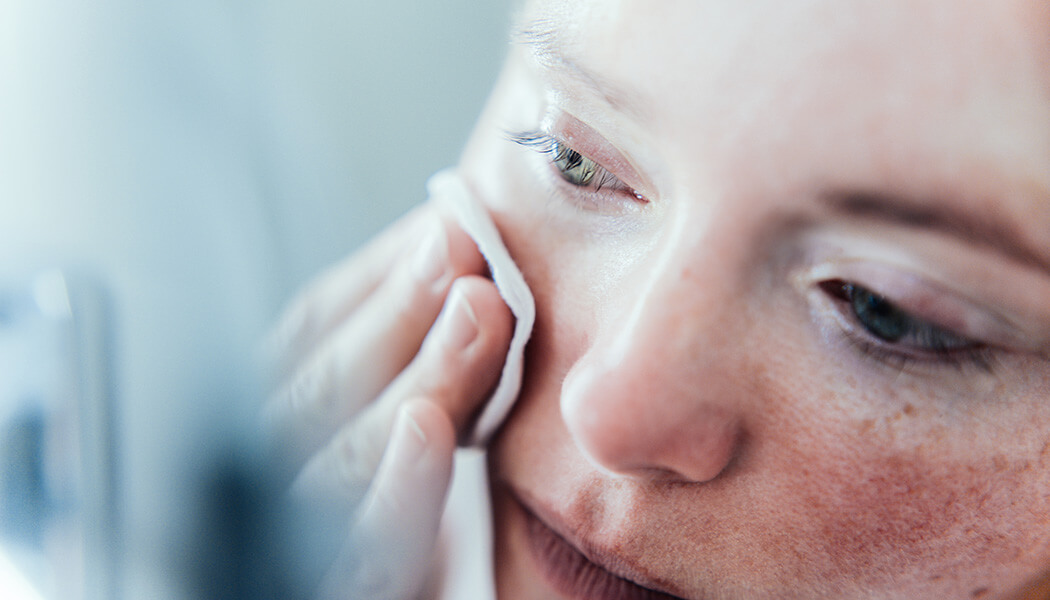- Association
- Cosmetics
- Detergents & cleaning products
- Members, Brands & Products
- Expert groups
- Laws & authorities Switzerland / EU
- Consumer Informations
- Sustainability
- Dates & Events

Responsible innovation: How the cosmetics industry pro-motes safety and sustainability
The cosmetics industry in Switzerland and the EU takes its responsibility seriously. It goes beyond compliance with strict legal safety standards and continuously seeks innovative, sustainable solutions. By developing a comprehensive ingredient data-base and validated alternative methods to prohibited animal testing, the industry is demonstrating its commitment to transparency, consumer protection and ethical progress.
Safety – Swiss and EU products set the highest standards
Cosmetic products come into direct contact with the skin and hair and, in the case of dental care products, also with the mouth's mucous membranes. Therefore, cosmetic products sold in Switzerland must be safe and comply with the requirements of the Foodstuffs Act (FSA). Cantonal laboratories regularly monitor compliance with this legislation. Because of its strict quality and safety standards, the European Cosmetic Products Regulation is also used as a model in many countries outside the EU.
Cosmile Europe – Cosmetics and their ingredients in 14 languages
Why are certain ingredients included in a cosmetic product? What functions or properties does a substance have?
The introduction of a science-based database for ingredient information in the Cosmetics Regulation was initiated by the industry. This commitment demonstrates that transparency towards consumers is a high priority for our industry.
To achieve this, standardised names for cosmetic ingredients must be used worldwide. This makes it easier for consumers to identify identical ingredients in products, regardless of manufacturer or country.
Cosmetics Europe, the umbrella organisation of the European cosmetics industry, has therefore launched a comprehensive database, currently available in 14 languages. The SKW is also a cooperation partner.
It allows users to quickly and easily access information on around 30,000 cosmetic ingredients from the COSMILE Europe website. Users can also find information on allergies and potential allergens. COSMILE Europe is based on data from trusted sources, including scientific assessments by European and national expert bodies and independent experts.
A mobile app is also available to keep this useful reference material at hand while you shop. It allows you to scan either the INCI list or the barcode on the product.
About COSMILE EUROPE
Health – Protecting professional users
The hairdressing industry, in particular, uses shampoos, dyes and conditioners daily. The products used in salons and their application are therefore subject to a number of legal requirements to ensure that not only customers but also employees are well protected.
According to the Cosmetics Regulation, a safety assessment is mandatory for all cosmetic products to ensure their safety for human health. This assessment includes an examination of the conditions of use of the product, including the concentrations of its ingredients, the duration and frequency of use and the place of application.
Ban on animal testing
Cosmetic products may not be marketed in Switzerland or the EU if the finished product or its ingredients have been tested on animals (see Art. 59 of the Swiss Ordinance on Food and Commodities (LGV)). The number of animal tests has been reduced to zero in recent years due to the development and acceptance of alternative methods, such as skin penetration. Further intensive efforts are underway to eventually replace all tests with alternative methods. For example, the European Partnership on Alternative Approaches to Animal Testing (EPAA), in which the German cosmetics industry is actively involved through the European umbrella organisation Cosmetics Europe, is developing alternative methods. As a result, the proportion of animals used in all animal testing for cosmetic ingredients in Europe was reduced to 0.0125% even before the ban was implemented in 2009.

